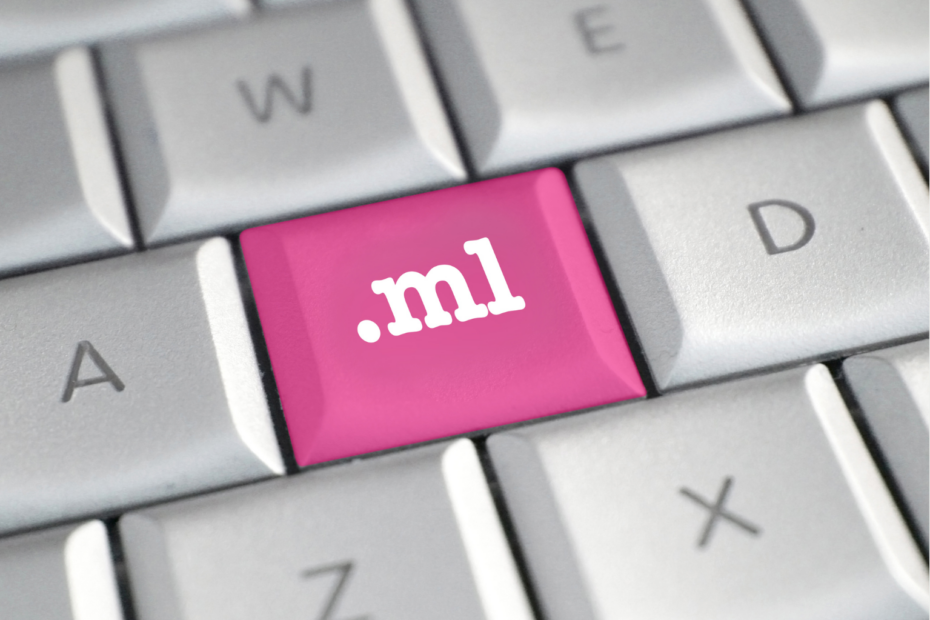A localhost, or loopback address, refers to calling a local IP connection, usually with the IP address, 127.0.0.1 to one’s own device. For individual devices, this means that the computer communicates with itself. This can be useful, for example, if you want to test applications and their functionalities locally first before making them available to a large number of users.
What is an IP address?
Before we can go deeper into the topic of localhost and its applications, it makes sense to understand how our computer normally communicates with the Internet and how IP addresses work. If you already know the concept, feel free to skip to the next chapter.
As soon as we are on the Internet with a device, we receive a so-called IP address. IP is an abbreviation for “Internet Protocol” and enables the requested or sent data packets to arrive at the correct location. You can imagine it simplified like addresses or telephone numbers on the Internet. Google offers the possibility to find out the own IP address by the search phrase “What is my IP address?”.
Every web server that provides a website also has such an IP address, so that it can be addressed specifically. The so-called Domain Name Server (DNS) ensures that we as users do not have to learn these IP addresses by heart, but can use the much simpler URLs. When we enter “www.databasecamp.de” into the browser, the Domain Name Server translates it into the correct IP address of the web server, i.e. 185.30.32.18.
As the number of registered websites on the Internet continues to increase, a distinction is now made between IPv4 and IPv6 addresses, which differ primarily in their length and possible number combinations. The number range of IPv4 is simply no longer sufficient to provide a unique IP address for all new websites and users.
A classic IPv4 address consists of four numbers from the value range between 0 and 255, separated by dots, e.g. 185.30.32.18. An IPv6 address, on the other hand, is somewhat more complex and consists of eight so-called segments separated by colons. Each segment can have a numerical value between 0 and the hexadecimal number FFFF. An example IPv6 address is 2023:db8:3323:4424:5565:6676:7777:8888.
What is the localhost?
The localhost is used to establish a connection with the own device. However, the IP address that the computer has on the Internet is not used, but the so-called loopback address 127.0.0.1. This ensures that the connection is not established via the Internet, but via the local network.

Technically speaking, the computer starts its own virtual server with which you can communicate even without the Internet. This server can then run, for example, specially programmed applications or websites. The localhost can also be accessed via a web browser, just like other websites.
What is the localhost used for?
In practice, there are many applications where it may be useful to use localhost. These include, among others:
- Testing: When developing applications and websites that are to communicate via the Internet at a later date, it makes sense to test them locally first. The application can be executed on the localhost and tested by the local user. Then it can be found out whether all functionalities work as desired.
- Blocking websites: Nowadays, the localhost is primarily used to test applications. However, it can also be used to block websites that contain harmful content or even viruses. These are then no longer accessible when entered into the browser. Before the Domain Name Server, the so-called host file was used to translate IP addresses into URLs and vice versa. This file can be used to redirect malicious websites to the local server to prevent access to the malicious web server.
- Speed testing: By pinging the localhost, system administrators can test the performance of the computer or local system. This shows how many files were transferred and how long the transfer took.
What is the loopback 127.0.0.1?
IP addresses are used on the Internet to uniquely identify devices or web servers. The loopback addresses that start with 127 are an exception here, however, because they are blocked for assignment and are used exclusively for local applications. Thus, when a 127 IP address is called, the computer knows directly that it is not a call from the Internet, but that the loopback is being started.

What is the importance of a localhost for software development?
In today’s software development, teams are working more and more frequently due to increasing complexity. It must be ensured that the innovations of one person do not ruin the work of another and that the entire system continues to function flawlessly.
The DevOps concept has often been used for this in recent years. Before a developer can add a new functionality to the overall concept, the application must first be tested on the local system. To do this, the programmer downloads the previous code version and tests the latest version together with the latest changes to ensure that the new features do not cause any problems. The localhost is also used for this in practice.
How to fix the most common problems with localhost?
Working with Localhost does not always run smoothly. Below you will find some of the most common problems and how you can solve them:
- Port conflicts: When working with different ports, errors can occur if the specified port is already being used by another program. To resolve this, the port number of the local host can be changed to another, free value.
- Firewall problems: With incorrectly set or very strict firewalls, it can happen that the loopback address is blocked and therefore no access is possible. It should therefore be ensured that the desired port is enabled in the firewall so that a connection is possible.
- Problems with DNS resolution: If “localhost” is entered in the URL bar of the browser, it can happen that this name is not resolved correctly by the Domain Name System and therefore no connection is possible. To resolve this, you can call up the IP address directly instead to avoid incorrect resolution.
- Error in the server configuration: In rare cases, a faulty connection to the local host may also be due to the server not being configured correctly. It should therefore be ensured, for example, that the Apache web server is also active, as otherwise no connection is possible.
- Insufficient memory / computing power: With large applications, it can also happen that the device does not have enough RAM to process a large data set, for example. To resolve this problem, the server should either be allocated more memory or a test run should be carried out with a smaller data set.
- Problems with file authorization: Problems accessing localhost can also occur if the running program does not have permissions for necessary files or directories.
In many cases, working with the localhost runs without any major problems. However, problems can occur in individual cases, which is why some solutions have been suggested in this section that can help to resolve them. With the help of these tips, connection problems can be resolved quickly.
What security issues should be considered when working with localhost?
Working with localhost is a solution that should only be used for test purposes or internal applications if possible, as it has some serious security vulnerabilities. It is therefore important to ensure that sensitive information such as passwords and API keys are not publicly accessible. It is therefore essential that various security measures, such as firewalls or encryption, are set up to ensure adequate protection.
In addition, the local server must also be equipped with up-to-date antivirus software, among other things, so that attacks can be prevented. As with other applications, working with data requires special security precautions, as the applicable data protection regulations must be complied with. Various measures must therefore be taken, such as the anonymization of personal data. Finally, it is also important to mention that the local host cannot replace testing in a production environment. Rather, it serves to create an initial proof of concept on which further development stages can follow.
Which common questions are asked in the context of localhost?
The localhost is a dedicated loopback interface that has a local system. It can be accessed either via the term “localhost” in the web browser or via the IP address “127.0.0.1”. Services and applications can be hosted on it, which run on the same device and are then played out via a web server. Despite its widespread use, there are still various questions about working with localhost, which will be answered in this section.
How do I access localhost on my computer?
You can simply open a web browser and enter “http://localhost” in the address bar. This will direct the browser to your computer’s local web server, which should display the default page or content hosted there. You can also use “http://127.0.0.1” as this is essentially the same thing.
Why can’t I access localhost?
In some cases, access to localhost may not be possible. This may be due to the following reasons, among others:
- Web server not running: In order for a result to be displayed, the computer’s web server, such as Apache or Niginx, must be running. If this is not active, the corresponding website cannot be displayed.
- Firewall settings: Depending on the port used, the firewall can also prevent access to the local host. Therefore, make sure that the firewall is configured in such a way that connections to the defined port are allowed and not intercepted.
- Incorrect URL or wrong port: If the web address is incorrect, access to localhost may not work. It must therefore be ensured that the URL is correct, for example “http://localhost”. Otherwise it can also happen that the computer does not use the standard port 80, but a different one. To avoid problems, this should also be checked again.
- Web server configuration: Otherwise, the applications themselves, which should be displayed on the localhost, may have an error and are therefore not displayed. To ensure that this is not the case, the server logs or other error messages should be checked.
Which port runs on localhost?
Many devices use the same ports for localhost applications by default. This is port 80 for HTTP and port 443 for HTTPS, which means that if you access the URL “http://localhost”, port 80 is automatically opened. However, if the desired service is running on a different port, this must also be defined by separating it with colons. So if port 8080 is to be accessed, the URL “http://localhost:8080” must be used.
Can I access localhost from other devices?
By default, Localhost is only intended for local access and cannot be called by other devices in the normal configuration. This interface is specially configured to only establish communication within the device and therefore does not offer the same functionalities as other interfaces. However, if the application is also to be accessed from other devices, a public IP address should be used to configure the web server. Otherwise, tools such as ngrok can also be used to create temporary access to the device, which then enables access to the local host. However, this should only be used as a temporary solution or for testing and not for a productive application.
How can the localhost be used for a local database setup?
In addition to web applications, the localhost can also be used to set up and test databases locally. This ensures that no running systems are affected and that experiments can be carried out without putting productive data at risk.
In addition, the use of localhost significantly speeds up the development process, as uncomplicated prototypes can be created, queries tested and entire database designs refined. All of this is independent of the running production system. This also has an effect on the debugging and testing phases, which can be used more efficiently.
Steps for setting up a local database
To set up a local database, the first step is to choose a suitable database management system (DBMS) based on the project requirements. In most cases, classic DBMSs are used, such as MySQL, PostgreSQL or MongoDB.
The desired system can then be installed and configured on the server. This includes, for example, setting up users and their passwords, as well as setting up databases and ports. The tables and the corresponding schema, which defines the data types and columns in more detail, can then be defined in the databases.
Once this setup has taken place, the actual data can be added. This allows operations and complex queries to be tested and real-life scenarios to be simulated. Backup and restore procedures are also practiced to ensure that the integrity of the data is maintained.
Managing Databases Locally
Developers can use various interfaces to work on the local host. On the one hand, there are the CLIs, i.e. command interfaces provided by the DBMS, with which the developer has direct control over the database operations. Alternatively, graphical user interfaces, such as phpMyAdmin, can be used, which have similar functionalities and also have a graphical display. This makes it possible for less technical users to work with the database.
In addition, there are also so-called ORM libraries (Object-Relational Mapping), which map database objects to code entities and can therefore significantly reduce the development effort.
Implementing Best Practices
In order to make working with localhost databases as standardized as possible, developers should adhere to certain best practices. These include, for example, the use of version control in order to be able to track changes in the long term. In addition, security measures should be guaranteed and scalability should be tested in order to be able to assess the performance of the database in various states.
The local host serves as a valuable test environment for setting up and refining databases during the development phase. This allows various database designs to be tested and perfected so that a resilient end product is available in the production system.
This is what you should take with you
- A localhost, or loopback address, refers to the call of a local IP connection, usually with the IP address, 127.0.0.1 to one’s device.
- It is mainly used for testing applications. However, it can also block websites or be used for performance tests of one’s device.
- In the IP address range, all IPv4 addresses starting with 127 are reserved for local applications as loopback addresses.
- However, there are important security considerations to keep in mind when working with localhost.
- Sensitive information must be protected and appropriate security measures should be taken.
- Data protection laws and regulations must be followed when working with data.
- It is also important not to use localhost as a substitute for testing in a production environment.
What is Collaborative Filtering?
Unlock personalized recommendations with collaborative filtering. Discover how this powerful technique enhances user experiences. Learn more!
What is Quantum Computing?
Dive into the quantum revolution with our article of quantum computing. Uncover the future of computation and its transformative potential.
What is Anomaly Detection?
Discover effective anomaly detection techniques in data analysis. Detect outliers and unusual patterns for improved insights. Learn more now!
What is the T5-Model?
Unlocking Text Generation: Discover the Power of T5 Model for Advanced NLP Tasks - Learn Implementation and Benefits.
What is MLOps?
Discover the world of MLOps and learn how it revolutionizes machine learning deployments. Explore key concepts and best practices.
Other Articles on the Topic of localhost
On this website, you can find your current IP address.

Niklas Lang
I have been working as a machine learning engineer and software developer since 2020 and am passionate about the world of data, algorithms and software development. In addition to my work in the field, I teach at several German universities, including the IU International University of Applied Sciences and the Baden-Württemberg Cooperative State University, in the fields of data science, mathematics and business analytics.
My goal is to present complex topics such as statistics and machine learning in a way that makes them not only understandable, but also exciting and tangible. I combine practical experience from industry with sound theoretical foundations to prepare my students in the best possible way for the challenges of the data world.





